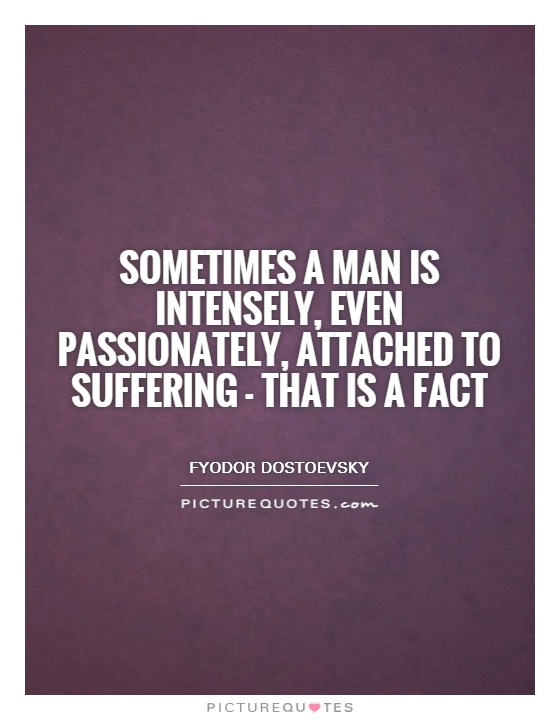Sometimes a man is intensely, even passionately, attached to suffering - that is a fact

Sometimes a man is intensely, even passionately, attached to suffering - that is a fact
Fyodor Dostoevsky, one of the greatest Russian novelists of all time, is known for his deep exploration of the human psyche and the complexities of human nature. In many of his works, Dostoevsky delves into the darker aspects of the human experience, including themes of suffering, redemption, and the search for meaning in a chaotic world. One of the recurring motifs in Dostoevsky's writing is the idea that sometimes, a man is intensely, even passionately, attached to suffering.This concept is perhaps most prominently explored in Dostoevsky's novel "Crime and Punishment," which tells the story of a young man named Raskolnikov who commits a brutal murder and is consumed by guilt and inner turmoil. Throughout the novel, Raskolnikov grapples with his own sense of worthlessness and his belief that he is somehow above the moral laws that govern society. He becomes obsessed with the idea of suffering as a form of redemption, believing that through his own suffering he can somehow atone for his crime.
Raskolnikov's intense attachment to suffering is a central theme in the novel, as he struggles to come to terms with his actions and find a way to reconcile his own sense of guilt and shame. Dostoevsky uses Raskolnikov's character to explore the idea that suffering can be a transformative force, leading to a deeper understanding of oneself and the world around them.












 Friendship Quotes
Friendship Quotes Love Quotes
Love Quotes Life Quotes
Life Quotes Funny Quotes
Funny Quotes Motivational Quotes
Motivational Quotes Inspirational Quotes
Inspirational Quotes